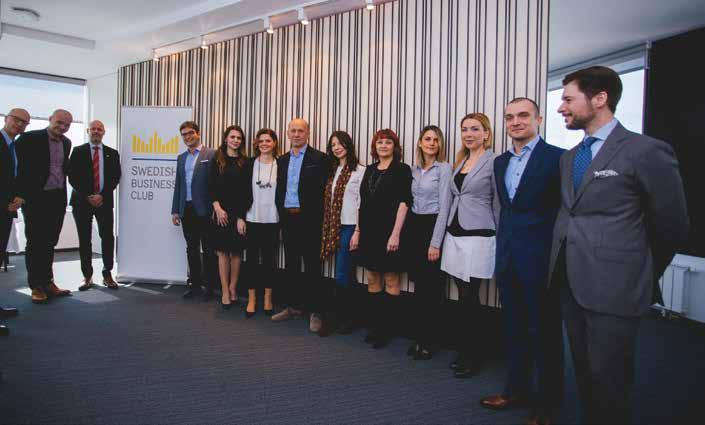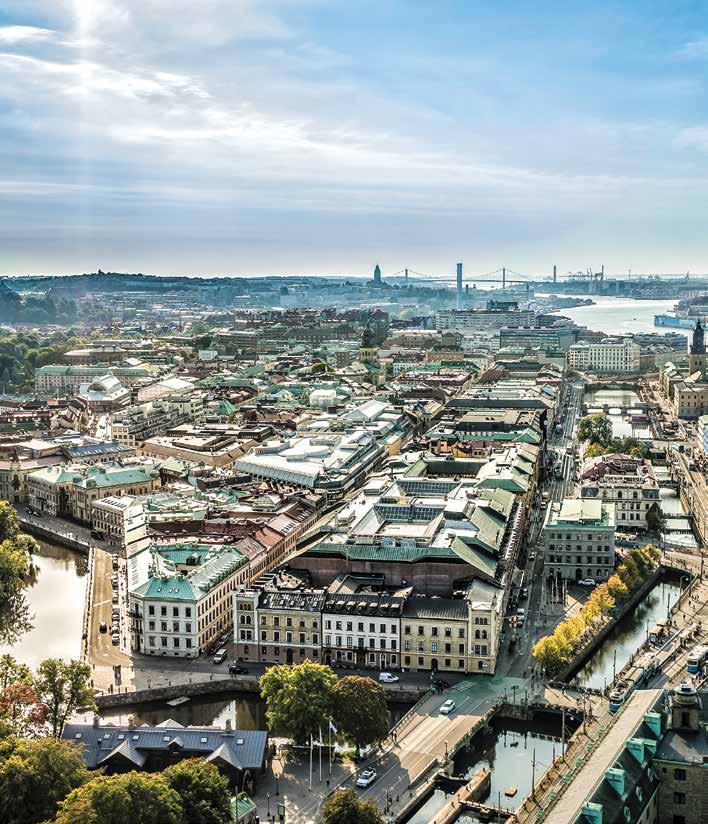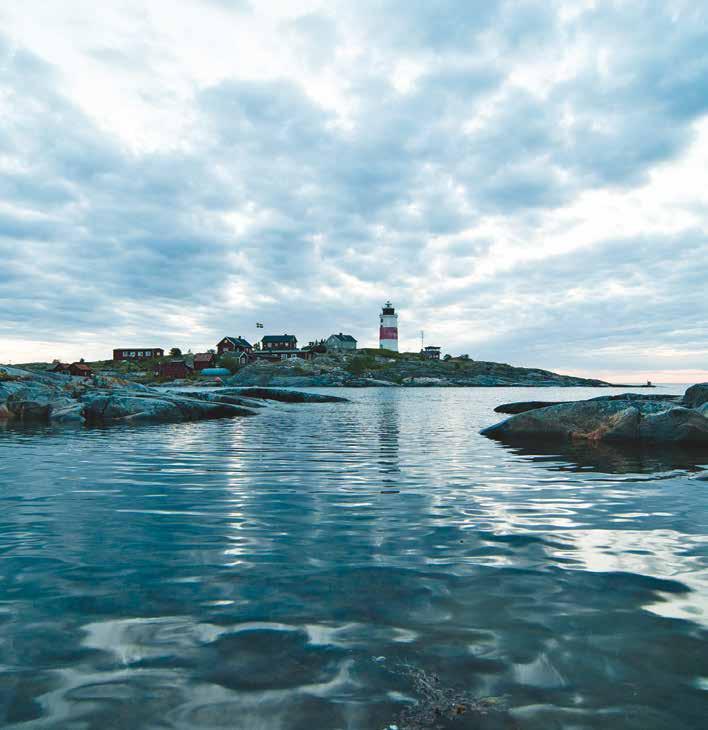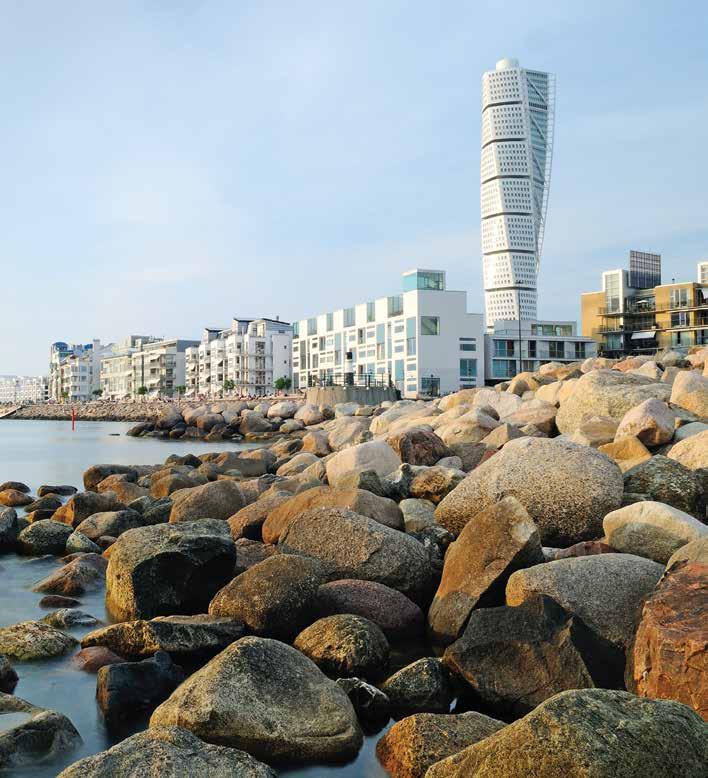
6 minute read
OUR MAIN GOAL IS BOLSTERING
INTERVIEW
MARKO BABIĆ
Advertisement
OUR MAIN GOAL IS BOLSTERING COOPERATION
Also, the figures relating to Croatia's export of services to this country are quite encouraging. All segments have been re cording growth, while engineering, food industry, and IT are singled out as sectors that have the potential for an even bigger cooperation - says Marko Babić, Assistant Director of the Department for Interna tional Affairs and EU Affairs at the Croatian Chamber of Economy (CCE).
Croatian President, Kolinda Grabar-Kitarović went on a five-day official visit to Sweden a year ago, which was the first visit of the Croatian president since 2003. What European and bilateral issues were set as priorities in regard to boosting the cooperation between the two countries? — During the official visit of the Croatian President, Kolinda Grabar-Kitarović, as a part of the economic delegation, the Cro atian Chamber of Economy visited Göteborg's technology parks, Lindholmen and Johanneberg. During the visit, the Swed ish-Croatian Economic Forum and B2B meetings between Croatian and Swedish business people also took place. A total of 11 Croatian and around 30 Swedish com panies participated in the forum, as did the representatives of the local and re gional authorities. Taking into account a fact that construction companies that are already present in Sweden for a certain period of time were part of the business delegation, it must be said that besides talks held with Swedish business com munity, their representatives exchanged experiences and tried to explore poten tial for future cooperation when operating on the Swedish market.
THE WALLENBERG FOUNDATION IS SERIOUSLY INTERESTED IN INVESTING IN THE CROATIAN MARKET, WHILE SAAB WILL LAUNCH AN INNOVATION PROGRAMME HERE
Croatia has repeatedly confirmed that it wanted to improve the neglected bilat eral relations with the Nordic countries, and not just maintain a connection with them in European institutions and at meetings in Brussels. How would you rate the progress made after a year of more frequent high-level visits? — On behalf of the CCE, I would definitely have to disagree with the statement that Croatia's relations with Sweden and other Nordic states are neglected. In the past twenty years, the Croatian Chamber of Economy has organized or participated in the realization of twenty business meet ings and conferences in Croatia and Sweden that covered a certain topic or followed the visits of senior officials. These were organ ized with the aim of intensifying bilateral economic relations.
These relations have still not reached their full potential but are definitely as cending. Out of all Nordic countries, Croatia has the most developed cooperation with Sweden, which is evident according to indi cators that suggest the rising trade of goods and services and the number of Swedish tourists and investments in Croatia.
During the said official visits, President Grabar Kitarović underlined that Croatia was particularly keen to strengthen the economic cooperation with Sweden as the European leader in innovation. How many Swedish companies in Croatia are considered the backbone in this segment? — There are about fifty Swedish companies operating in various business segments in Croatia, with the R & D sector being the best example. We would like to single out Ericsson Nikola Tesla dd, with their Research and De velopment Centre, which is also the largest software development centre in the region. It employs around 1,000 people and it con tinues to invest significant financial resources in the field of innovative information and communication solutions in various areas.
To what extent did Croatia utilize the benefits of EU membership in terms of increasing the presence of its companies in Sweden? — Croatia's membership of the EU contributes to a more balanced trade in goods and an increase in export of services to the other EU Member States, including Sweden, but also to generating additional interest in continuing and increasing investments in Croatia, as well as having more Swedish tourists coming to Croatia.
The data that the Croatian Bureau of Statistics collated for 2017 shows that Cro atia's export of goods amounted to Sweden to EUR 113.5 million, representing a 9.2% decline compared to 2016, while imports from Sweden amounted to EUR 126.6 million, a 3.3% decrease also relative to 2016.
Of course, I would like to underline a more significant trade in services between Croatia and Sweden. According to the 2016 data collated by the Croatian National Bank, the revenue from service exports to the Kingdom of Sweden was EUR 316.9 million, while EUR 65.9 million was the value of import in the same period. In the first three quarters of 2017, the export of services to Sweden amounted to EUR 264.5 million, while at the same time, the value of import was EUR 37.2 million.
How many Swedish companies are currently doing business in Croatia and how many of them have announced their arrival to this market? How many workers do Swedish companies here have and how much did they invest so far?
WE PLAN TO ORGANIZE THE CROATIAN-SWEDISH FORUM AND B2B MEETINGS AND THUS FURTHER BOOST THE BILATERAL ECONOMIC COOPERATION
— There exist around fifty Swedish companies operating on the Croatian market through greenfield and brownfiled invest ments and through their subsidiaries. They have mostly invested in telecommunications, wholesale trade, and in brokerage servic es in a variety of products and real estate. The Wallenberg Foundation is serious ly interested in investing in the Croatian market. Consequently, we may observe the announcement made during their visits at the end of 2017 and few days ago that the Swedish defence and security company SAAB will launch the Innovation Programme in Croatia. To this end, the CCE is absolute ly ready to support the realization of this project, including providing the best pos sible infrastructural support.
What has the CCE been doing in order to attract more investors from the North? — The CCE implements important activities on identifying investment potential in indi vidual counties, identifying and promoting projects that are either in the development phase or ready for implementation, estab lishing links between investors and Croatian companies / project managers, mediating in communication with relevant institutions at national and local level, obtaining all relevant information on procedures that have to be carried out, as well as about legislative pro cedures that have to be carried out when implementing an investment, and organ izing individual programmes for investors.
What role does the diaspora play in promoting bilateral relations between the two countries? — The role of the Croatian diaspora is extremely important in every sense, including the economy. The CCE cooperates with representatives of Croatian community who are successful business people in Sweden, and who are also focused on cooperating with Croatian companies within the scope of their business activities. I would like to point out an extraordinary cooperation with com panies that sell Croatian food products on the Swedish market in the Swedish market and those which collaborate with Croatian companies in the construction sector on the implementation of projects in Sweden.
COMPANIES







